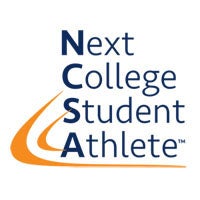The NCAA's recruiting calendar can be very intimidating with all its
dates, bars and colors, but James Steward clears it all up.
The
Next College Student Athlete recruiting coach sits down with MaxPreps
host Steve Montoya for a "Making the Jump" podcast not only to explain
each period of the calendar, but offer helpful advice for potential
college players and their parents.
MAKING THE JUMP: Subscribe on iTunesIn
this segment, Steward breaks down the "contact period," which is when the college coaches really get out and meet potential players face-to-face. The most notable time is the last three weeks in January.
"The reality is for a lot of these programs they're just so busy that they might not have the time or recruiting budget on top of doing their game preparation," Steward said. "So post season is going to be a big part of this slot."
Especially if the recruit is a long distance away.
"If they can't get to your living room real quick, this is a big, important time you actively want to be communicating with the college coach," Steward said.

To start your free NCSA recruiting
profile click here.
No matter the case, don't get discouraged, Steward says. Just be realistic.
In the
entire 23-minute podcast, Steward offers countless tips to aspiring
college football players, though the NCSA also counsels prep athletes
pursuing
all other sports.
Steward spends the rest of the podcast talking about the importance of highlight tapes, timely
release of transcripts and taking college tests, evaluation camps,
social media, your high school coach, picking the appropriate college
and learning to communicate with adults.
He notes as vital as the
high school coach can be in the process, it's not something a potential
college player should count on.
"Getting
you recruited is not their job," he said. "If they are able to help you
and willing, that is a bonus and thank them immensely. Absolutely, take
their assistance.
"But ultimately this is going above and beyond their job
description. This is on you. If you want to play college football, it's
not the coaches' job, it's not mom and dad's job. You're going to be the
guy going out and doing that."
